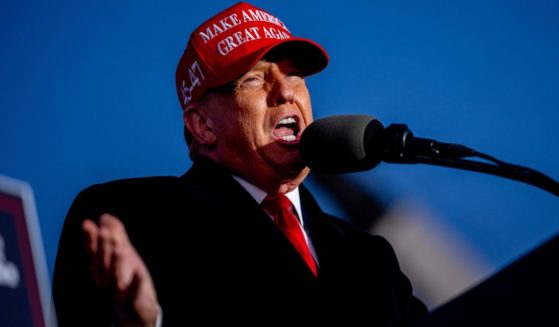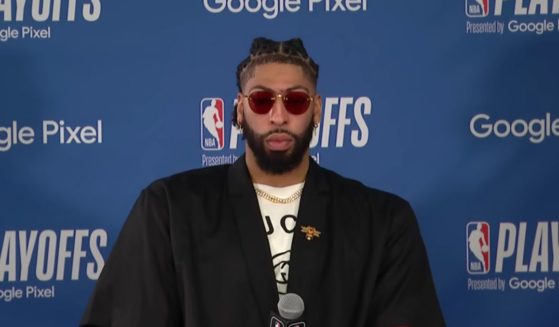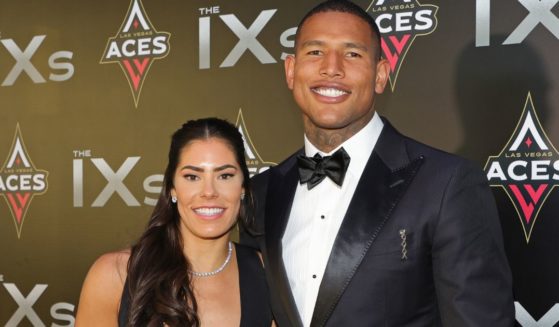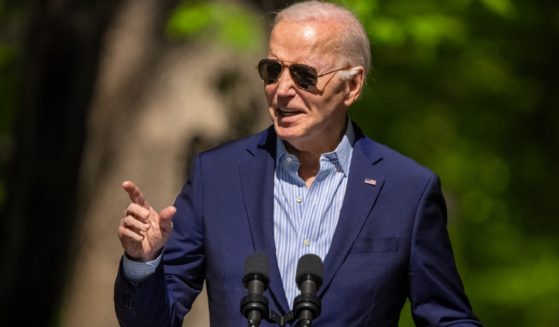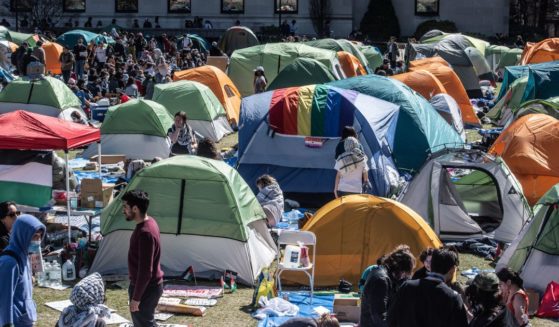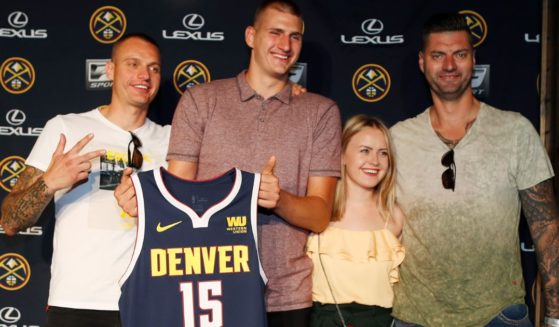Trump Signs Memorandum That Greatly Benefits Service Academy Athletes
President Donald Trump has signed a presidential memorandum ordering the Pentagon to develop a new policy to allow athletes attending the nation’s military academies to play professional sports immediately after graduating.
The memo says student-athletes graduating from the academies and Reserve Officers’ Training Corps should be able to defer their military service obligations due to the “short window of time” they have to “take advantage of their athletic talents during which playing professional sports is realistically possible.”
It gives the defense secretary 120 days to develop a plan.
Trump had said in May that he was considering the change while presenting the Commander-in-Chief’s Trophy to the U.S. Military Academy football team.
“Under current Department of Defense (DOD) policy, new graduates of the Military Service Academies (Academies) and Reserve Officers’ Training Corps (ROTC) programs cannot pursue careers in professional sports until after they have served 2 years of commissioned service in the Armed Forces,” the president said in his memorandum. “As I recently stated, these student-athletes should be able to defer their military service obligations until they have completed their professional sports careers.
“Such cadets and midshipmen have a short window of time to take advantage of their athletic talents during which playing professional sports is realistically possible. At the same time, these student-athletes should honor the commitment they made to serve in the Armed Forces in exchange for the extraordinary benefits afforded to them at taxpayer expense at the Academies or ROTC programs.
“A revised policy will benefit the student-athletes, the Academies and ROTC programs, and the Armed Forces.”
He ordered the defense secretary to “develop a policy that authorizes new graduates of the Academies and ROTC programs to pursue professional sports opportunities immediately following graduation, consistent with their military service obligation.”
The Defense Department in 2017 rescinded a policy that allowed the best athletes from the military’s service academies to go straight to the pros upon graduation instead of having to first serve on active duty.
That meant they had to serve two years of active duty before applying for reserve status to pursue a career in professional sports.
Then-Defense Secretary Jim Mattis, in an April 2017 memo, said that the service academies “exist to develop future officers” and that graduates would serve as “full-fledged military officers carrying out the normal work and career expectations” of someone who received an education at the taxpayers’ expense
Several Navy football players have gone on to have success in the NFL, most notably 1963 Heisman Trophy winner Roger Staubach, a quarterback for the Midshipmen from 1962 to 1964.
After serving a tour of duty in Vietnam, he joined the Dallas Cowboys in 1969 and guided the team to a pair of Super Bowl victories.
More recent NFL players from service academies have included former Cowboys defensive tackle Chad Hennings (Air Force), former Los Angeles Raiders running back Napoleon McCallum (Navy) and current Pittsburgh Steelers offensive tackle Alejandro Villanueva (Army).
The most prominent NBA player from a service academy is San Antonio Spurs legend David Robinson, an All-American at the Naval Academy who was selected first overall in the 1987 NBA draft.
A 10-time NBA All-Star and two-time champion, Robinson was inducted in the Hall of Fame in 2009.
The Western Journal has reviewed this Associated Press story and may have altered it prior to publication to ensure that it meets our editorial standards.
Truth and Accuracy
We are committed to truth and accuracy in all of our journalism. Read our editorial standards.

